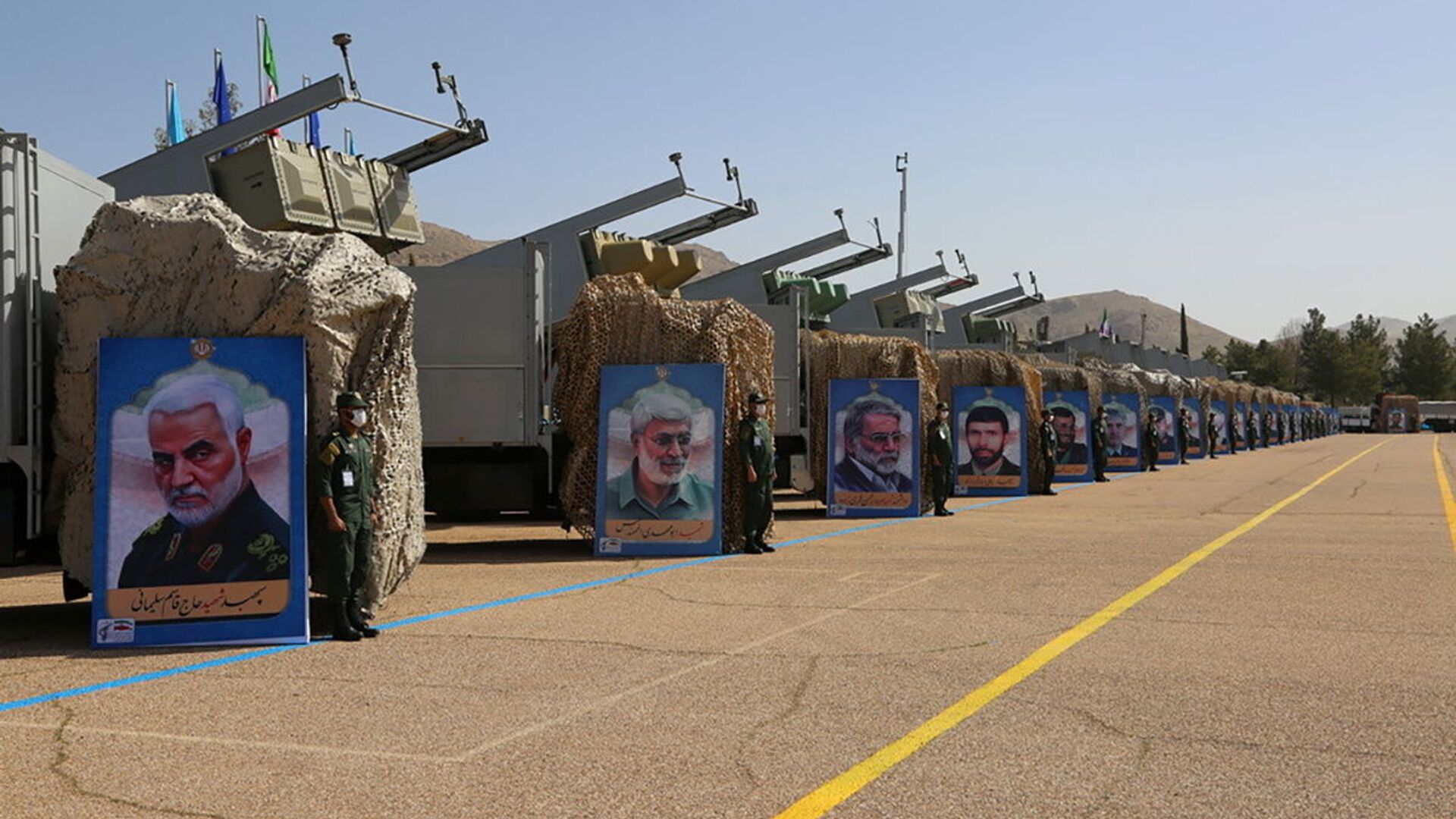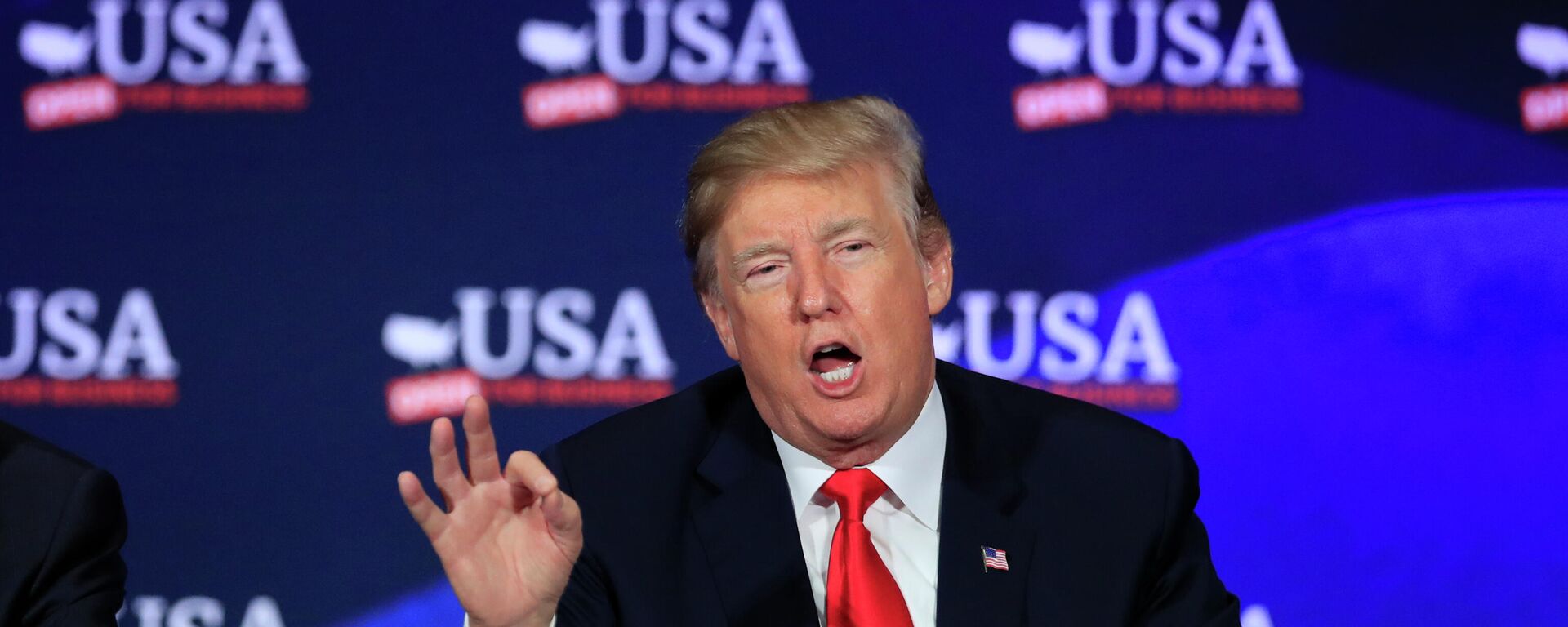Iran Gave ‘Stinging Slap on America’s Face’ in Response to Soleimani Killing, Warns of More Revenge
12:01 GMT 10.01.2022 (Updated: 13:08 GMT 10.01.2022)

© REUTERS / WANA NEWS AGENCY
Subscribe
Tehran marked the second anniversary of Revolutionary Guard Quds Force commander Qasem Soleimani’s assassination last week. The anti-terror general was killed in a drone strike in January 2020. Iran responded by lobbing over a dozen missiles at two US bases in Iraq, leaving over 100 American troops with traumatic brain injuries.
Iran has taken only “part” of the retaliatory measures it plans to take in response to Qasem Soleimani’s assassination, Islamic Revolutionary Guard Corps commander-in-chief Hossein Salami has warned.
“We have taken part of the harsh revenge, and another part of it still remains. Everybody is definitely aware of this. The US officials must bear in mind that it is impossible to take an act of aggression on a nation and evade a reciprocal revenge,” Salami said, speaking at a ceremony in Tehran, his remarks cited by Tasnim and PressTV.
Characterising the 8 January missile attack on US bases in Iraq as a “stinging slap on the face to the United States, which considered itself the emperor of the world and did not stop making threats of tit-for-tat retaliations,” Salami stressed that the strike proved Iran’s military capabilities across a broad theatre.
The Revolutionary Guards commander went on to blast Washington over the audacity of the killing, saying that unlike the US, Iran “did not assassinate a defenseless and unarmed commander, who was fighting terrorism across the Muslim World and had travelled to Iraq at an official invitation, with a drone in the dead of night.”
Iran marked the second anniversary of Qasem Soleimani’s assassination on 3 January. During the two decades that he served as commander of the Revolutionary Guards Quds Force – Iran’s elite extraterritorial fighting force, Soleimani assisted the Iraqi and Syrian military forces, Iraqi militias and even US-supported Kurdish forces in the fight against Daesh (ISIS)*, al-Qaeda* and other jihadists. In the 2000s, Soleimani’s Quds Force provided support to Lebanon’s Hezbollah militia in the 2006 Israel-Lebanon War.
On Sunday, the Islamic Republic slapped sanctions on 51 Americans, including both current and former officials, targeting everyone from serving Pentagon generals to current and former top spies and security advisors to former president Donald Trump. Trump himself, as well as former secretary of state Mike Pompeo, ex-national security advisor John Bolton, and former CIA director Gina Haspel, were designated earlier in the sanctions, known as the ‘Act on Countering Violations of Human Rights and Adventurist and Terrorist Actions of the United States of America in the Region’.
Iranian and Iraqi courts have repeatedly threatened to prosecute Trump and others for Soleimani’s murder. Interpol has refused to touch the case, citing its “political” nature.

Iran’s President Says ‘Main Violator and Murderer’ Trump Must Face Trial for Soleimani Assassination
3 January 2022, 19:03 GMT
Soleimani’s death continues to resonate in the minds of many Iranians and the people of the Middle East in part because he was seen as standing beyond Iran’s Islamic Republican system of government, and, as recently described by President Ebrahim Raisi, as someone “belonging to no political grouping.” Soleimani’s anti-terror activities, Raisi said, helped save Shia and Sunni Muslims, Christians, Yazidis and all followers of the Abrahamic religions across the Middle East from the scourge of Islamist extremism.
